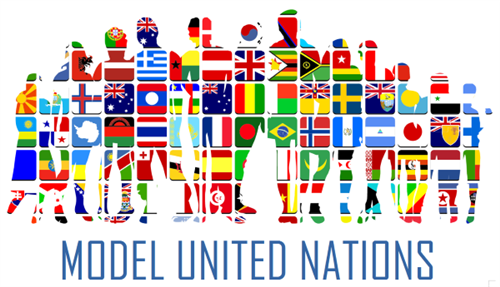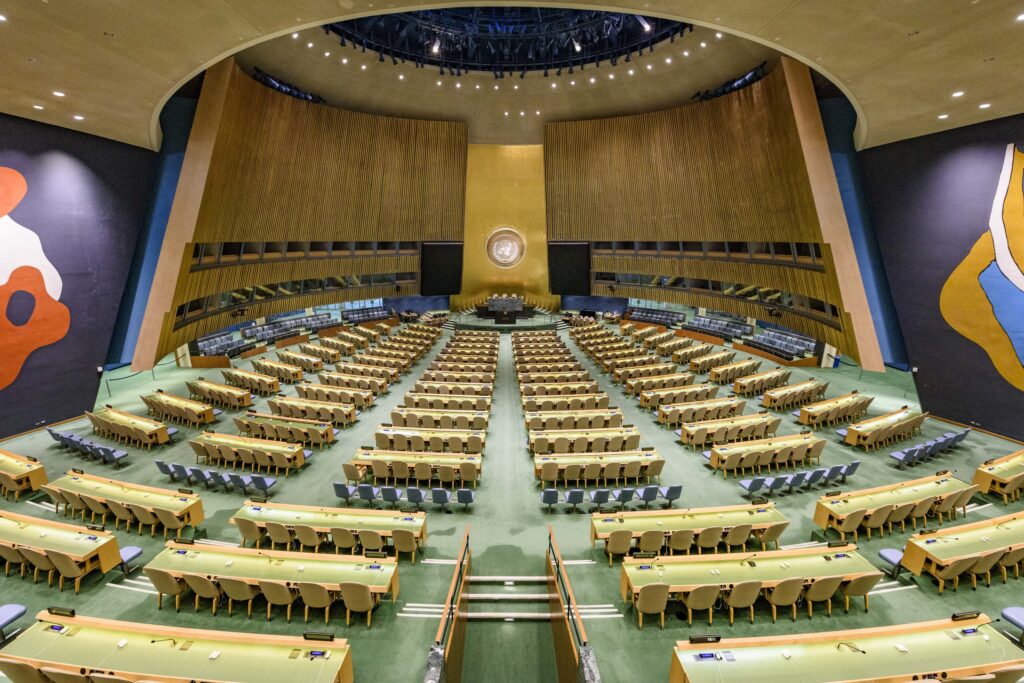HomeAbout
About

About the G-7 AMBASSADORS
The G-7 AMBASSADORS MODEL teaches Leaders about the United Nations as an institution, its role in world affairs, and the art of diplomacy that underlies the unique way in which it makes decisions that affect our lives.
The G-7 AMBASSADORS is a simulation of an actual United Nations conference, where students, youths, and leaders are tasked with solving a global issue through research, drafting, lobbying, and debate to pass a suitable ‘resolution’.
Students take on the roles of delegates, speakers, and chairs, representing different countries, and work together with other students from different backgrounds to take part in discussions and reach a solution for the agenda they are assigned.
The G-7 Model is very competitive and uses rules of procedure to help students grow in a more advanced diplomatic environment. It creates an idealistic view of society by promoting the United Nations roles and rules.

WHO WE ARE
The G-7 AMBASSADORS are comprised of Delegates from the 7 continents of the world namely :
- Africa
- North America
- Asia
- South America
- Europe
- Australia or Oceania
- Antarctica 🇦🇶
We represent a body of interest that seeks to build a unified body of individuals irrespective of cultural diversity, Language, Political Affiliation, Gender, and Religion.
Our Opinion on the goals of nation-building is dynamite. We do this through organizing conferences in various countries of the world.
Our anchored efforts to contribute to the Diverse goals of the United Nations 
The G in our name stands for GOVERNMENT
The 7 In our name stands for the 7 Continent.
In general, we are being referred to as the GOVERNMENT OF THE SEVEN CONTINENT OF THE WORLD MODEL.
We also carried out our services Voluntarily as we are committed to solving societal chaos through leadership training and support to the larger community.
As a NON- GOVERNMENTAL organization, which we are, our core values and vision are the following :
- Diplomacy
- Leadership values
- Education
- Negotiations or debates
- Advanced methods of comparative SDG goals and how we can train students to be felicitous to those goals.
- Community Services
Our devotion to the teachings of the goals of the United Nations 

OUR MISSION
- To promote diplomatic ethics
- To encourage young leaders to take roles in society
- To train and produce Ambassadors for peace
- To promote United Nations Goals

OUR VISION
- Bringing together people of different cultures.
- Inculcating nation-building values
- Breaking the barriers in culture.
- Unifying the Seven Continents of the World
Benefits of Participating in the G-7 Model
Preparing and participating in our G-7 MODEL helps youths develop leadership skills, research, writing, public speaking, and problem-solving skills. Moreover, coming up with solutions that are acceptable to a majority of the representatives also inculcates skills in negotiation, conflict resolution, and cooperation.
- GLOBAL KNOWLEDGE
Keeping up with global affairs may get dull at times by simply reading news articles or watching video news programs. By participating in our G-7 MODELS, your knowledge of the events of the world will increase tremendously as you represent a country at a ‘global’ level and interact with other delegates representing other countries.
As a delegate, you will be required to research your allotted countries in-depth, analyzing and understanding their foreign policies and considering which factors would influence the behavior of the country at an international level. As you study the intricacies of the issue – the background, history, treatment in the UN, and previous resolutions passed on it – you will gain practical and thorough knowledge of world affairs.
- SELF-ASSUREDNESS
OUR Model involves meeting new people, interacting with unfamiliar faces, working in teams to develop resolutions to assigned tasks, and expressing views in a self-assured manner. From preparing for the models to the discussions, debates, and resolutions made during our conference, the entire experience will serve to boost your self-esteem
After participating in our Model, you will feel much more comfortable about working with new people and expressing yourself easily. The confidence gained will help you in future interactions where you will need to express yourself in high-pressure situations.
- DIPLOMACY
Diplomacy, or the art of negotiation, is not only restricted to conversations between two countries, but pertains to any purposeful exchange between two groups, and thus, is a very useful skill to possess. By practicing diplomacy at the G-7 MODEL, you will become more knowledgeable and experienced in how to conduct negotiations between two groups in a tactful and result-oriented manner.
Apart from learning the skill of diplomacy, students aspiring to become professional diplomats can practice and groom themselves for the field by participating in the Models, which are real-life examples of the life and work of professional diplomats.
- NETWORKING
Attending the G-7 MODEL is an ideal way to network, make new friends, and build connections that will come in handy later on. During our model, you will meet other delegates, senior delegates, organizers, co-sponsors, judges, and chairs of the event. By making new contacts and meeting possible mentors, you can cultivate your network for future use.
What Skills Do I Get During the G-7 Model?
The G-7 MODEL is a powerful educational tool that teaches its participants essential skills for the future. From public speaking to research and problem-solving, The model provides invaluable lessons for students of all ages. As such, delegates need to learn many of these skills to be successful in their leadership journey.
In this Model, we will explore some of the core skills that every delegate should learn From developing an understanding of international relations to establishing effective communication techniques, these skills will equip delegates to debate and discuss global issues with confidence. Additionally, we will discuss how to effectively research topics and argue positions to further develop delegates’ skills and better prepare them for the experience.
- Understanding Parliamentary Procedure
One of the most important skills for G-7 delegates to learn is how to understand and use parliamentary procedures. This is the set of rules and processes used to conduct meetings and debates efficiently and fairly. Knowing parliamentary procedure allows you to make sure that everyone is listened to and that all voices have a chance to be heard. It also helps ensure that meetings are conducted promptly and that the outcome of a debate is well-informed and fair. Learning parliamentary procedures will help ensure that your experience is an enjoyable and successful one.
- Constructing and Delivering Speeches
Crafting a successful speech is an essential skill during our Model. As a delegate, you must be able to deliver a powerful speech that can persuade a room full of people to accept your position. Constructing a speech begins with a clear argument and the main point. Once you have that established, you need to make sure your speech is organized and that your evidence is strong. It is also important to keep in mind the time limits and to practice your speech ahead of time. Once you are ready to deliver your speech, remember to make direct eye contact with the audience and speak confidently.
- Research and Writing Position Papers
Research and writing position papers are an essential skills every one of our delegates should learn. A position paper is an essay that states a delegate’s opinion and stance on a particular issue. It should provide an overview of the issue, detail the delegate’s proposed solutions, and explain how the solutions would benefit the committee. Doing research on the issue and formulating an opinion is an important part of writing a position paper. Taking the time to properly research and understand the issue is crucial for writing an effective position paper. It is also important for delegates to back up their opinions with facts and evidence from reliable sources. Writing a good position paper is key to a successful experience.
- Negotiation and Debate Tactics
Negotiation and debate tactics are key for successful Model delegates. By learning these skills, you can better manage the debates and reach an agreement with the other delegates. You should focus on developing your understanding of different negotiation styles, like hard bargaining and soft bargaining, and how to use them in different situations. Additionally, you can practice debate tactics, like employing rhetoric and logical argumentation, to win arguments and convince other delegates of your point of view. Finally, learn how to write persuasive resolutions that bring together the interests of all parties involved and create a lasting agreement.
- Listening and Analyzing Skills
Listening and analyzing skills are essential for every delegate. Being an effective listener means paying attention to the speaker and understanding their arguments. It’s also important to be able to pick up on the subtle nuances of a speaker’s argument and identify any logical flaws or gaps in the argument.